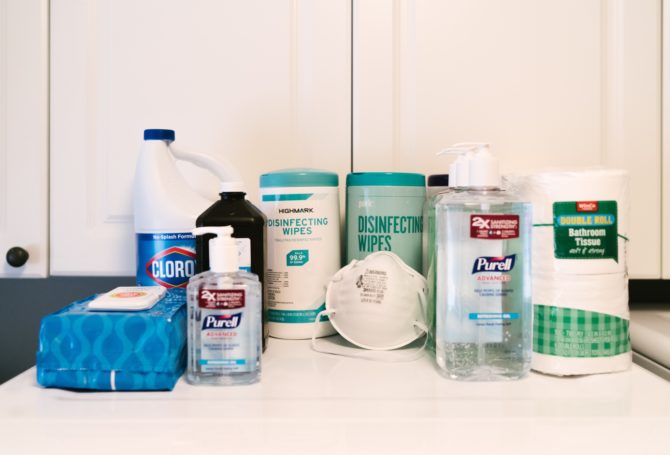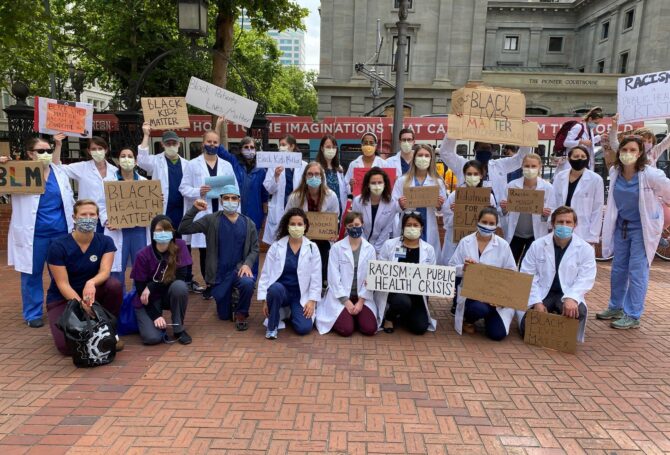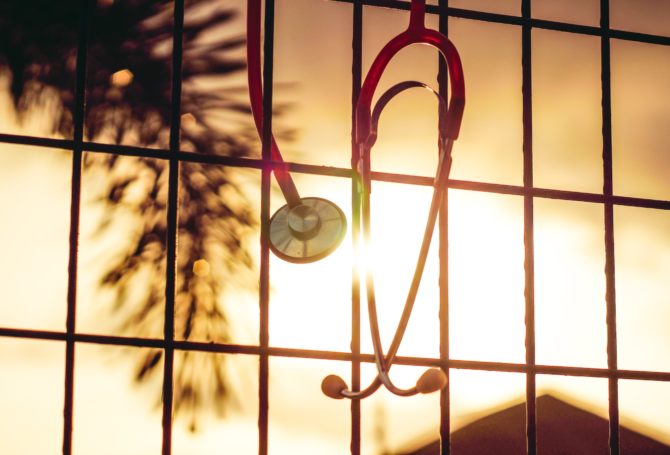
April 24, 2020
There are some dangerous myths families may hear about ways to treat or prevent COVID-19, and this is one of them. Household disinfectant products such as bleach are poisonous and should never be used on or in our bodies.
Of course, using these products while following label directions to clean our homes—especially during the COVID-19 pandemic—is a good way to help prevent the spread of germs. Regularly cleaning “high touch” surfaces such as doorknobs, light switches and countertops is an especially good idea, according to the U.S. Centers for Disease Control and Prevention (CDC).
But even when using disinfectants to clean our homes, it’s important to be careful and keep your family safe around them. According to the CDC, the number of calls to U.S. poison centers related to cleaners and disinfectants began to spike in March once COIVD-19 became widespread. Some tips:
Household disinfectant safety
- Safe storage. While using and storing these products, keep them out of reach of young children.
- Good ventilation. Open a window and turn on a fan for air flow.
- Protect skin. Wear gloves to help protect your skin.
- Don’t mix cleaners. Never mix bleach with other cleaning products such as ammonia or vinegar, which can create toxic gas.
Other home poison prevention tips
It’s also important to keep in mind other potentially dangerous products that children may be more likely to get ahold of during the COVID-19, pandemic. These include:
- Hand sanitizer. Many families stocked up on hand sanitizer when the COVID-19 pandemic started spreading. Remember it contains highly concentrated alcohol that can be dangerous for children, so keep it where children can’t get it. Keep any travel size bottles in purses, backpacks and cars out of reach, too.
- Laundry products. You may be doing more laundry, especially if a family member is an essential worker potentially exposed to COVID-19 on the job each day. Be sure to keep potentially toxic detergent packets and dishwasher detergent stored safely.
- Button batteries. With child care centers and schools closed and parents trying to juggle working from home, children may be playing with toys unsupervised. Be sure they can’t access button batteries found in many toys, as well as remote controls, key fobs, and other common household items.
- Medications. Be sure to safely store medications after using them. This goes for both prescription and over-the-counter products.
- Liquid nicotine. As always, keep dangerous vape e-cigarette refills out of reach. In fact, if you smoke, this is an especially good time to quit, with experts concerned that smoking and e-cigarette use may raise the risk of getting sick from COVID-19.
Remember
The best ways to keep your family well during the COVID-19 pandemic is to stay home and keep your distance from others, and get plenty of sleep and exercise. Read, play games, dance, and find ways to support each other. However, we need to be even more mindful about hazards in our homes while we are protecting ourselves. Talk with your pediatrician if you have any questions about keeping your family safe and healthy during the COVID-19 pandemic.
Benjamin Hoffman, MD, FAAP
Benjamin Hoffman, MD, FAAP is a Professor of Pediatrics and the Director of the Tom Sargent Safety Center at Doernbecher Children’s Hospital at Oregon Health and Science University in Portland, Oregon. In addition, he serves as Director of the Oregon Center for Children and Youth with Special Healthcare Needs.
Originally published on HealthyChildren.org on 4/24/20.



